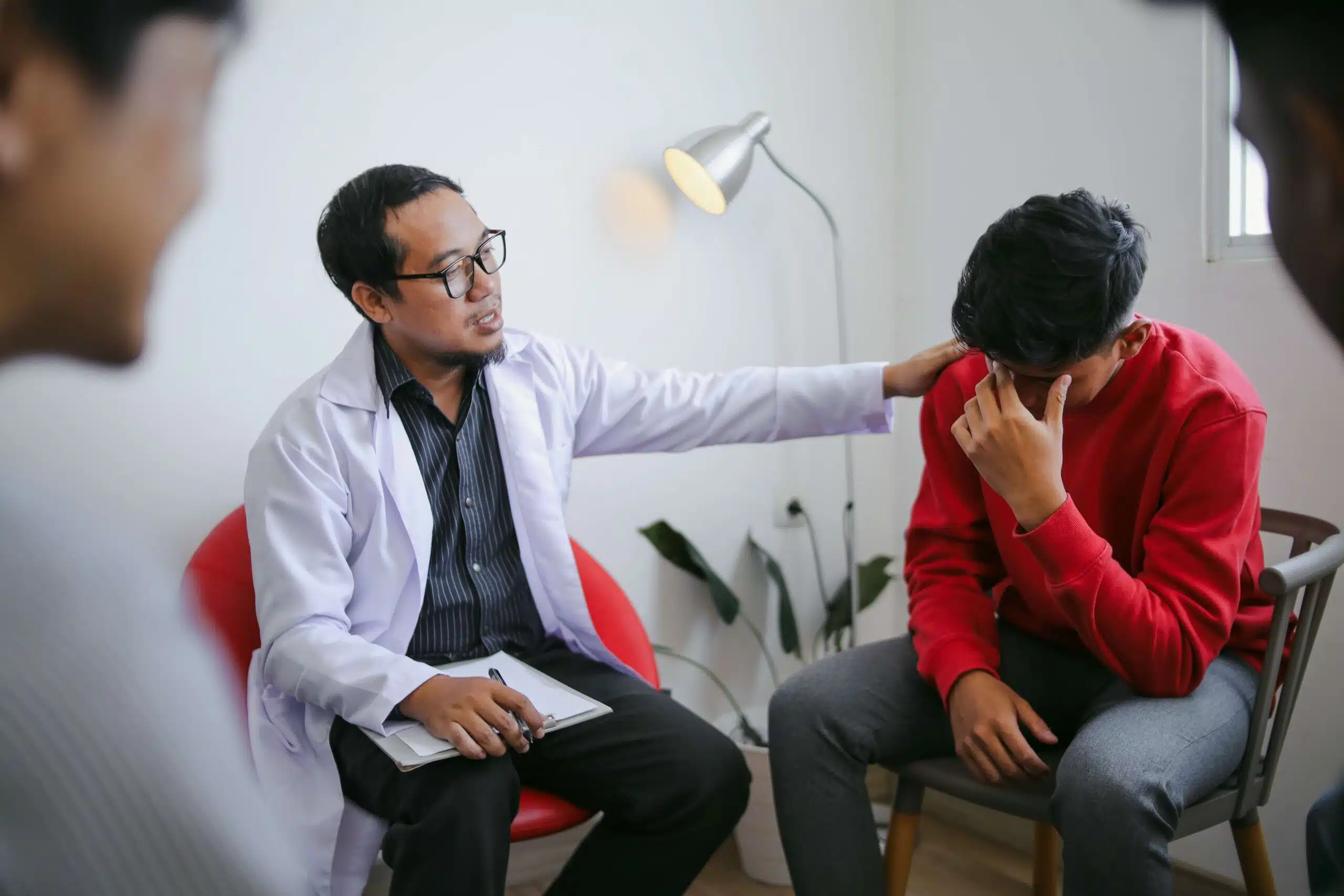Outpatient Treatment Programs. Substance Abuse: Diagnosis And Treatment
People suffering from a substance abuse disorder have a full plate of challenges. At some point in time, they will hopefully come to the realization they have an addiction and need to get help. The only viable help that’s available has to come for a substance abuse treatment center. Of course, the treatment itself offers a few additional challenges.
A majority of people that enter treatment have more going on than just their involvement with addiction. In many cases, individuals who enter rehab are also suffering from some type of mental or emotional disorder. In the addiction treatment community, someone who is suffering from both a mental issue and addiction is said to have a co-occurring disorder. If you believe this might apply to you, you’ll want to pay close attention to the information provided below.
Diagnosis of Co-Occurring Disorders
When someone enters treatment, they typically go through an intensive assessment process. A facility intake clinician is seeking to gather information about the nature of the patient’s addiction. The information they gather will help them determine the proper course of treatment.
There are times the patient will immediately exhibit signs of a potential mental issue. Common mental issues found among addiction suffers include depression, high levels of anxiety, bi-polar issues, psychosis, and schizophrenia. Anytime one of these additional issues become apparent, the clinician might want to gather more information before they prescribe treatment. This part of the process is very important for reasons to be discussed below.
It’s also possible that a patient might not exhibit mental or emotional problems until the addiction treatment process has already begun. Mental disorders are not always easy to detect. When entwined with an addiction to drugs or alcohol, these same mental disorders are more difficult to detect than one might think. It’s only during this time in treatment that the therapist could begin to realize they are dealing with more than a straight addiction issue. If detection is made during therapy, it might necessitate a change in the direction of treatment.
No matter when the diagnosis of a co-occurring disorder is made, it will require a special treatment process to deal with both issues at the same time. More on that later.
Importance of Determining Order of Causation
Co-existing conditions among substance abusers can come about in two different ways. Sometimes, mental disorder prompts addiction. This is very common among patients who take medications prescribed for anxiety or impulsive disorders. The most popular medications a doctor may prescribe for these types of mental disorders are highly addictive. Any mismanagement of the medication, intentional or otherwise, could lead to a full-blown addiction to the drug. It’s a serious problem because the patient has become addicted to a substance they need for normal functioning.
It’s also very possible for the addiction to cause mental problems. Think of the long-term drug user who eventually encounters serious problems with depression or paranoia. Prior to substance abuse, these issues were not apparent or didn’t exist at all. It was only through unfettered drug/alcohol abuse that the mental disorder was given life.
Treating a Co-Occurring Disorder
While not a lot is known about why co-existing conditions are becoming so prominent, one thing has become very clear. It’s critical that the patient is treated for both disorders simultaneously. Why is that critical?
If one disorder is prompting another, they are linked. The problem with treating one and not the other at the same time is the untreated disorder will continue to be ominous cloud handing over the treated disorder. It simply doesn’t work. Both disorders need to be treated at the same time in order to prevent relapses from one disorder interfering with the other.
As for “dual diagnosis treatment”, some top treatment centers, including ours, are equipped to treat both disorders. It requires a combination of addiction treatment counselors and someone who is licensed and trained to treat mental disorders. If one individual has the credentials to handle both aspects of treatment, that would be the optimum solution. When an in-house mental disorder treatment professional is not available, the patient might have to submit to outsourced treatment.
The Substance Abuse Treatment Process
The course of treatment a clinician prescribes for a patient depends on the nature of the patient’s addiction. In many cases, treatment will begin with a detox program. It’s vitally important that the patient is given time to get past their cravings and withdrawal symptoms prior to tackling the rigors of therapy. A fully licensed detox center will likely be able to keep the patient comfortable while they clear the worst of their withdrawal symptoms.
Therapy is the time when the patient gets an opportunity to learn the truth about their addiction. The causes, sometimes a mental disorder, quickly become the targets of counseling. The goal is to help the patient build the coping and life skills they will need to navigate around their triggers and the temptations that stand before them. A strong set of coping skills will almost assure the patient will be able to maintain lasting recovery.
If this is about you, you need to know the following. Your addiction does not have to become your way of life. If you are in the early stages of addiction, you can expect things to get worst until you decide your life is worth fighting for at all costs. The time you invest in dealing with your addiction and mental disorder issues will likely be the best investment of time you will ever put forth in your life. Above all, you will get the chance to learn how to live life “one day at a time.” Hopefully, substance abuse treatment will give you the opportunity to live thousands of those days without succumbing to drugs or alcohol. Please contact us for more information.


Overland IOP is a top rated mental health & addiction treatment Intensive Outpatient Center located in Los Angeles, California. Overland OIP offers individualized treatment for people seeking comprehensive services that encompass mental illness and/or co-occurring addiction. We accept most PPO and some HMO health insurance plans.
Overland Intensive Outpatient is ready to provide both, in-person and virtual care (telehealth services) to expand access to essential health services and meet the health needs of our patients. Start your treatment with Overland IOP today!
Our team at Overland IOP is dedicated to deliver a treatment experience beyond expectations. We pride ourselves on being highly-skilled professionals, dedicated to providing personal and exceptional care.
Published: October 15, 2020

Published: June 30, 2025
ABA Therapy Controversy: What Families Should Know in 2025
Autism prevalence has climbed to 1 in 36 U.S. children, and payers now reimburse up to 40 hours a week of Applied Behavior Analysis (ABA)—still the only intervention every state is required to cover. Despite the praise from pediatric associations, many autistic adults describe the same therapy as traumatic. Parents must navigate a maze of […]
Read more
Published: June 06, 2025
Ozempic and Alcohol: What You Should Know
Moderate alcohol use is generally permissible while on Demaglutide (Ozempic®/Wegovy®) or Tirzepatide (Mounjaro®, Zepbound®), though extra caution is wise due to blood-sugar variability and compounded GI side-effects. As for craving control, semaglutide—and potentially tirzepatide—shows promising but preliminary evidence of reducing alcohol consumption. Larger Phase III trials are under way, and FDA approval would be the […]
Read more
Published: May 23, 2025
Intensive Outpatient Program Duration
Intensive Outpatient Programs (IOPs) bridge the gap between full-time residential care and traditional outpatient services. Designed for individuals who require more structured support than weekly therapy but do not need 24-hour supervision, IOPs offer flexibility—letting clients continue to work, attend school, or care for family while engaging in an intensive treatment schedule. Overland IOP in […]
Read more
